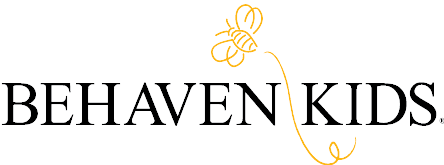
Applied Behavior Analysis has been the gold-star method to bridge the gap for children with autism who are navigating life in a neurotypical world. So why is it a hot topic? Some advocate for its life-changing benefits, others have voiced concerns based on personal experiences with outdated or unethical practices.
At its core, ABA as a science is not controversial- it’s a research-based approach to understanding behavior and teaching important life skills. The controversy arises from how it has been applied by some practitioners in ways that do not prioritize the dignity, autonomy, and well-being of the individual.
Let’s dive into the truth about ABA- It’s foundation, misuse and ethical evolution that has made it a powerful tool when used correctly.
ABA is based on decades of scientific research of behavior it aims to help individuals learn new skills, improve communications and increase independents by understanding how their behaviors are influenced by the environment. ABA as a science is neutral, like most sciences, it’s how practitioners apply it that determines whether it is helpful or harmful.
When applied correctly, ABA is:
Individualized – Tailored to the needs, strengths, and goals of each person.
Evidence-based – Rooted in research, showing effectiveness in improving communication, daily living skills, and independence.
Adaptive & Evolving – The ABA of today is not the rigid, compliance-based therapy of decades past. It has shifted toward play-based and client-centered approaches.
So where has ABA gone wrong? Where do the criticisms come from? Most critics of ABA base their opinions on outdated and unethical practices such as:
Overemphasis on Compliance – Early ABA models (such as those developed by Dr. Ivar Lovaas in the 1960s) focused on making autistic individuals behave in a “typical” way, often discouraging natural self-expression like stimming or unique communication styles.
Lack of Autonomy & Consent – Some ABA programs historically ignored the individual’s choices, preferences, and comfort levels, focusing only on eliminating “undesirable” behaviors rather than understanding their purpose.
Variability in Providers – Because ABA is widely practiced, not all providers follow ethical, modern approaches. The difference between a high-quality, compassionate ABA program and a rigid, outdated one can be significant.
These concerns highlight the need for continuous improvement, ethical practices, and the person-centered approach we strive for at Behaven Kids.
When ABA is practiced with respect, consent, and a focus on the individual’s well-being, it can be life changing.
Ethical, modern ABA focuses on:
Building Independence & Life Skills – ABA helps individuals develop communication skills, daily living skills, and self-advocacy, promoting independence.
Supporting Natural Communication – Ethical ABA embraces alternative communication methods like AAC devices, sign language, and naturalistic speech development.
Encouraging Autonomy & Self-Advocacy – Instead of forcing compliance, today’s best ABA programs teach children to make choices, express their needs, and advocate for themselves.
Using Play-Based, Strengths-Focused Learning – Modern ABA focuses on engagement, motivation, and enjoyment, helping children learn in natural, meaningful ways.
The goal of ethical ABA is not to “fix” autism—it’s to support individuals in ways that respect their identity and promote their well-being.
The real controversy is not about ABA itself, but about how it has been applied in the past—and how we must continue to improve it for the future. At Behaven Kids we believe we have a responsibility to ensure therapy is: ethical, respectful, collaborative, adaptive and evolving. We are committed to modern, ethical, and compassionate ABA.
If you are interested in getting your ABA journey started today, click here to for more information and how to get started!
